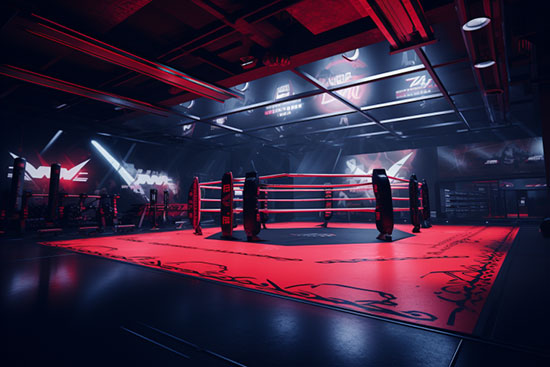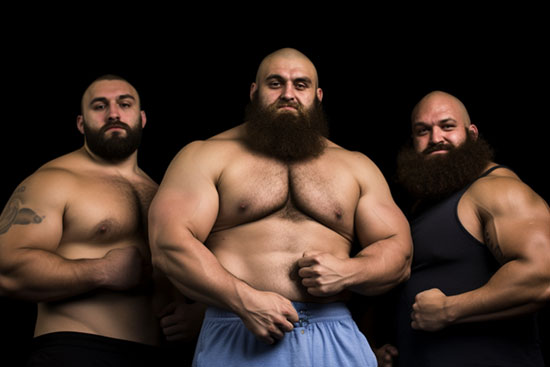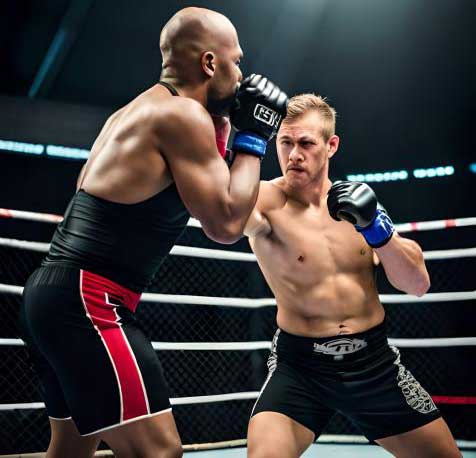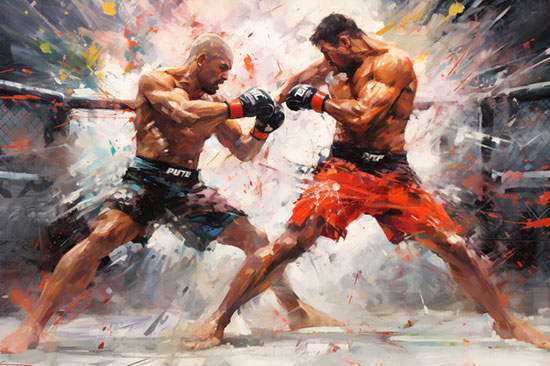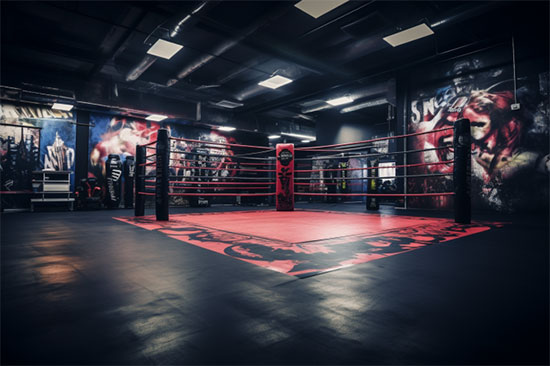The Ultimate Fighting Championship (UFC) is a premier mixed martial arts (MMA) organization that has gained immense popularity since its inception in 1993.
The sport has evolved significantly over the years, with fighters now showcasing a mixture of different martial arts disciplines.
However, without the pioneers who stepped into the UFC octagon for the very first time, the sport would not be where it is today.
Contents
The Beginning of the UFC
When the UFC was first formed, it was not like the modern-day MMA organization we know today. It started as an 8-man tournament-style event named “UFC 1: The Beginning” held on November 12, 1993, in Denver, Colorado.
The concept behind the UFC was to determine which martial arts style was the most effective in real combat situations.
Below are some of the first fighters who stepped into the octagon and made history:
Royce Gracie: The Grappling Master
Royce Gracie, a Brazilian Jiu-Jitsu (BJJ) practitioner, is widely considered one of the most influential fighters in the history of the UFC.
He won the first-ever UFC tournament in 1993 by utilizing his grappling skills to defeat opponents who often had a significant weight and size advantage.
Gracie’s mastery of BJJ, a ground-based martial art focused on submissions and grappling techniques, revolutionized the sport.
He showcased the effectiveness of Brazilian Jiu-Jitsu by defeating opponents from various other martial arts backgrounds.
Some key takeaways from Royce Gracie’s impact on the early UFC fights:
- Gracie popularized Brazilian Jiu-Jitsu in the United States and around the world.
- He highlighted the importance of ground fighting and submissions in MMA.
- Gracie’s success paved the way for the widespread adoption of BJJ in the UFC and other MMA promotions.
Ken Shamrock: The Lion’s Den
Ken Shamrock, known as “The World’s Most Dangerous Man,” was another iconic figure in the early history of the UFC. He brought a hybrid style of fighting, combining wrestling, submissions, and striking techniques.
Shamrock was the winner of the UFC 1 alternate tournament, and he quickly established himself as an elite competitor in the promotion.
His intense rivalry with Royce Gracie in UFC 5 drew significant attention to the sport and helped increase its popularity.
Shamrock’s impact on the early UFC fights included:
- Showcasing the effectiveness of a well-rounded fighting style.
- Popularizing the use of strikes and submissions in combination.
- Elevating the status of the UFC through his intense rivalries and exciting fights.
Dan Severn: The Wrestling Phenomenon
Dan Severn, a former professional wrestler, made a significant impact in the early days of the UFC with his dominant wrestling skills. He joined the UFC in 1994 and quickly showcased his superior grappling and ground control abilities.
Severn’s unique blend of wrestling and submission skills captured the attention of fans and fighters alike.
He became the UFC Superfight Champion, an honor bestowed upon him for his impressive achievements in the octagon.
Key highlights of Dan Severn’s influence on the early UFC:
- Raised the profile of wrestling as a crucial discipline in MMA.
- Demonstrated the importance of ground control and takedowns.
- Showed that fighters from different martial arts backgrounds could excel in MMA.
Tank Abbott: The Street Fighter
Tank Abbott was one of the most polarizing figures in the early history of the UFC. With his intimidating demeanor and street-fighter style, Abbott quickly became a fan favorite despite his limited technical skills.
Abbott’s brawling mentality and knockout power made him a force to be reckoned with in the octagon. He often engaged in slugfests, with little regard for proper technique or strategy.
Abbott’s significance in the early UFC:
- Attracted a wide fan base through his entertaining, brawling style.
- Demonstrated the appeal of raw power and aggression in MMA.
- Showed that skill and technique were not the only factors driving success in the cage.
Conclusion
The first UFC fighters in history played a pivotal role in shaping the sport of mixed martial arts and laying the foundation for its future growth and development.
Fighters like Royce Gracie, Ken Shamrock, Dan Severn, and Tank Abbott brought unique skills, styles, and personalities to the octagon, captivating the audience and forever changing the landscape of combat sports.
From the grappling mastery of Royce Gracie to the emergence of well-rounded fighters like Ken Shamrock and Dan Severn, the early UFC fights established the importance of versatility in the sport.
These pioneers broke barriers, shattered stereotypes, and paved the way for the diverse MMA landscape we see today.
The impact of these first UFC fighters goes beyond the octagon. They popularized various martial arts styles, revolutionized training methods, and inspired generations of fighters to pursue careers in MMA.
Without their contributions, the UFC and the sport of MMA would not have achieved the global recognition and mainstream success it enjoys today.
As MMA continues to evolve, it is essential to recognize and appreciate where it all started. The first UFC fighters will forever be remembered as true pioneers who fearlessly stepped into the unknown, changing the fighting world forever.
